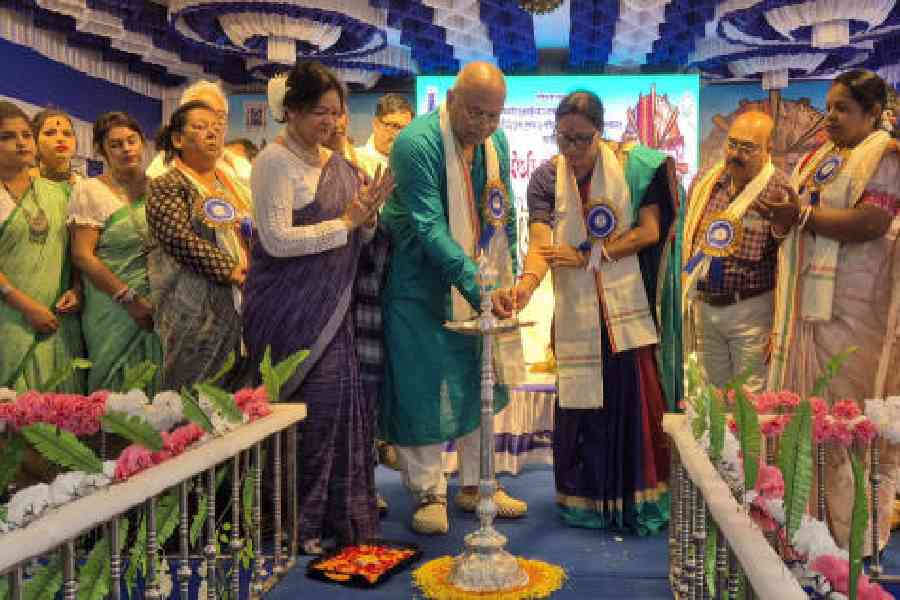The state MSME (micro, small and medium enterprises) and textiles department has taken a slew of initiatives to encourage setting up different micro-level units in north Bengal to create employment in the region, Chandranath Sinha, the state MSME and textiles minister, said here on Monday.
Sinha was here to inaugurate the regional khadi fair that was hosted by the West Bengal Khadi and Village Industries Board.
“The government is providing financial assistance and subsidies to people and self-help groups who run micro units. In north Bengal, our department will spend around ₹15 crore to help such units and develop the infrastructure of the MSME and textile sectors,” Sinha told newspersons on the sidelines of the event.
The fund, he said, would be spent on Darjeeling, Jalpaiguri, Alipurdur, Kalimpong and Cooch Behar districts.
According to him, the department has decided to open multiplex centres in
every district.
“These multiplex centres will be in the public-private-partnership (PPP) model and provide spaces for self-help groups and others to sell their products,” said Sinha.
The minister also elaborated on some of the initiatives they have taken so far in
the region.
The initiatives include providing vermicompost pits (vermicompost is used in agriculture) to 130 youths in Mainaguri of Jalpaiguri at a cost of ₹1.3 crore, an assistance of ₹1.5 crore to 1,000 farmers in Matiali block of the district to encourage millet cultivation and an allocation of ₹1 crore to set up a khadi marketing centre in Falakata, Alipurduar.
“In Cooch Behar, we have given ₹1.2 crore to around 2,000 artisans associated with shitalpati (traditional, natural fibre mats) making. Another 26 artisans who make mekhla (a traditional garment) have been given ₹8 crore,” he said.
In the hills, around 250 beneficiaries who are into bee-keeping have been assisted with ₹2.5 crore.
Sinha also announced a plan to promote Bengal handlooms.
“According to chief minister Mamata Banerjee’s instructions, we will soon introduce a franchise model named ‘Banglar Sari’ to market saris made by handloom weavers. Private companies will be involved in managing the franchise to ensure a wider market reach for traditional Bengali saris,” Sinha said.










